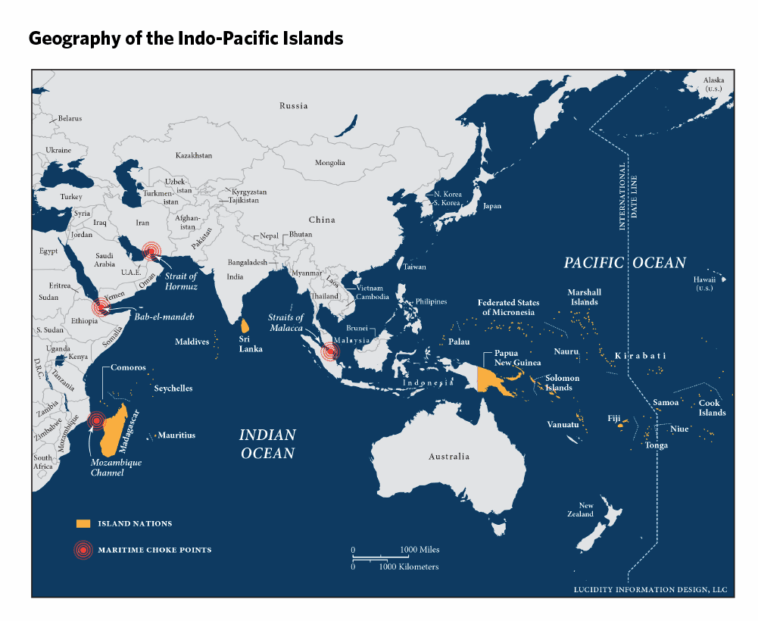In the year 2023, South Korean marines teamed up with the United States in a landing exercise, taking place in Pohang, South Korea. This marked the inaugural amphibious assault initiative between the two nations in half a decade, driven by escalating tensions originating from North Korea. An insightful dialogue followed, outlining an extensive strategic blueprint for the United States and its coalition to be actively involved in the Asia-Indo-Pacific region. This conversation underscored ‘America First, Allies Always’ as a primary guiding principle, contending that the power of alliances could be leveraged to oppose authoritarian regimes, particularly those forming the China-Russia-Iran-North Korea alliance, henceforth known as the CRInK bloc.
The strategic vision clarified, advocated for no misinterpretations with regional prioritization (such as prioritizing Taiwan over Korea) and stressed the importance of implementing holistic, concurrent tactics that hinge on elements of deterrence, influence manipulation, and human rights preservation. It spotlighted key initiatives such as the introduction of a ‘Two Plus Three’ scheme for the Korean Peninsula aimed at nurturing a free and unified Korea, the positioning of Strategic Agility Platforms throughout the region, and the promotion of human rights as an effective strategic instrument.
The discourse ended with an appeal to move away from an ambiguous strategic past and to welcome an era of collective defense and moral lucidity needed to dominate in this age characterized by multifaceted ideological rivalry. The truth is, the Asia-Indo-Pacific region isn’t merely a far-off geopolitical stage. Instead, it stands as the primary battlefield for strategic rivalry, ideological dispute, and unified collaboration.
To navigate these challenges originating from our domestic politics, I put forth the proposition of embracing the existing notion of ‘burden owning’. This implies every nation being responsible for its own defense and then collectively crafting alliance strategies to confront the shared challenges posed in the Asia-Indo-Pacific and globally.
China closely monitors the Korean Peninsula for hints of American tenacity. Meanwhile, North Korea keeps an eye on Taiwan for signs of dispersion. We simply cannot let one crisis disrupt the deterrence structure of the other. For the unique defense hurdle posed by the Korean Peninsula, our support leans towards the implementation of a two-plus-three strategy.
This strategic approach stands firm on two tenacious pillars and three innovative elements. The first pillar revolves around military deterrence with the goal to prevent warfare. Ascertaining deterrence is United States’ paramount national interest on the peninsula. The unceasing presence of U.S. troops, harmonized with the Republic of Korea’s sophisticated military apparatus, has presided as the cornerstone of peace for seven decades.
The notion that focusing on human rights is a divergence from security is erroneous. It is, indeed, an essential part of it. Echoing the words of President Reagan, ‘A bird cannot fly with only one wing.’ Military robustness must go hand in hand with ethical clarity. Human rights stand not merely as a moral obligation; they are closely related to national security matters too.
To equip itself with nuclear weapons, the Kim regime feels compelled to infringe upon human rights. The regime capitalizes on the profits from its overseas forced labor. Its existence hinges on the suppression of the human rights of North Korean citizens. By empowering the people of Korea with truth, unity, and optimism, we can disrupt the regime’s legitimacy from within. This way, we close the positive loop of freedom and reunification.
Facing such threats necessitates a strategy that combines comprehensive deterrence, quick response, initiative seizure, and unified determination. We cannot afford to dwell on past wars. We must gear up for potential future conflicts while simultaneously managing existing crises worldwide. Let’s be candid: Authoritarian powers foster no genuine allies.
China establishes control over its vassal states. Russia cultivates enablers. North Korea amasses customers. Yet, the democratic world nurtures true partners. This is the underlying reason why we insist on the principle: ‘America First, Allies Always.’

